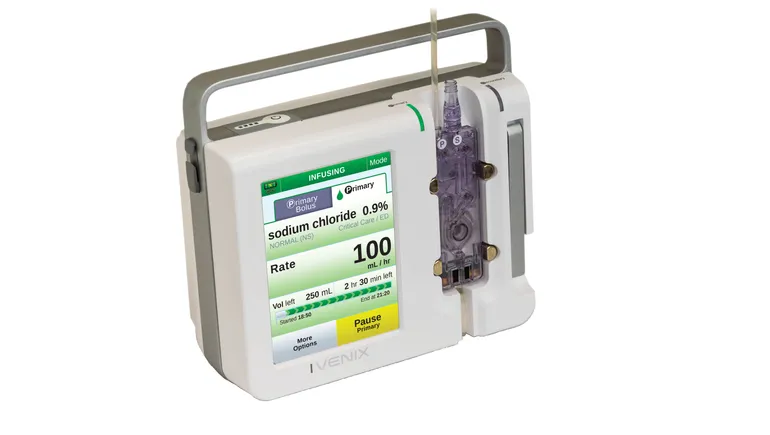Dive Brief:
- Fresenius Kabi has received a warning letter related to the large-volume infusion pumps that it acquired through its $240 million takeover of Ivenix.
- The Food and Drug Administration sent the letter after inspectors found fault with the handling of corrective and preventive actions for the Ivenix Infusion System. Fresenius took too long to complete investigations, the inspectors found, and failed to establish certain procedures.
- FDA inspectors visited the site in Massachusetts five months after Fresenius began recalling Ivenix infusion pumps in response to a leak risk that could cause the devices to fail.
Dive Insight:
Fresenius bought Ivenix to strengthen its medtech business, particularly in the U.S., and support its growth strategy. Management has called for patience as Ivenix rolls out its new pump, with Fresenius CEO Michael Sen telling investors that “any new product takes time to hit [its] stride” on an earnings call in February. The rollout is laying the foundation for sales of consumables and software, Sen said.
However, Fresenius has faced quality problems, with the FDA issuing three Class I recall notices and a warning letter since the company closed the takeover in 2022. The FDA referenced two of the Class I recalls, plus a Class II notice, in the warning letter.
According to the FDA warning letter, Fresenius failed to conduct an adequate root cause analysis investigation into a software bug that led to the first Class I recall in September 2022. The FDA also called out the inadequate verification of the corrective and preventive action plan for the leak problem that led to the second Class I recall. Fresenius began the third Class I recall after the FDA inspection.
The warning letter also covers failures to establish and maintain procedures. A Fresenius impact assessment did not document the “apparent risk” of continuing to use a component, the FDA said, and another analysis failed to “include the hazard of extended start-up time to achieve the stated flow rate accuracy.” The extended start-up time problem was the subject of a Class II recall.
Fresenius sent four sets of responses to the issues the FDA raised in a Form 483 after the inspection. However, the agency ruled that some of the responses were inadequate and that it was unable to assess the adequacy of other responses until more evidence is available.

